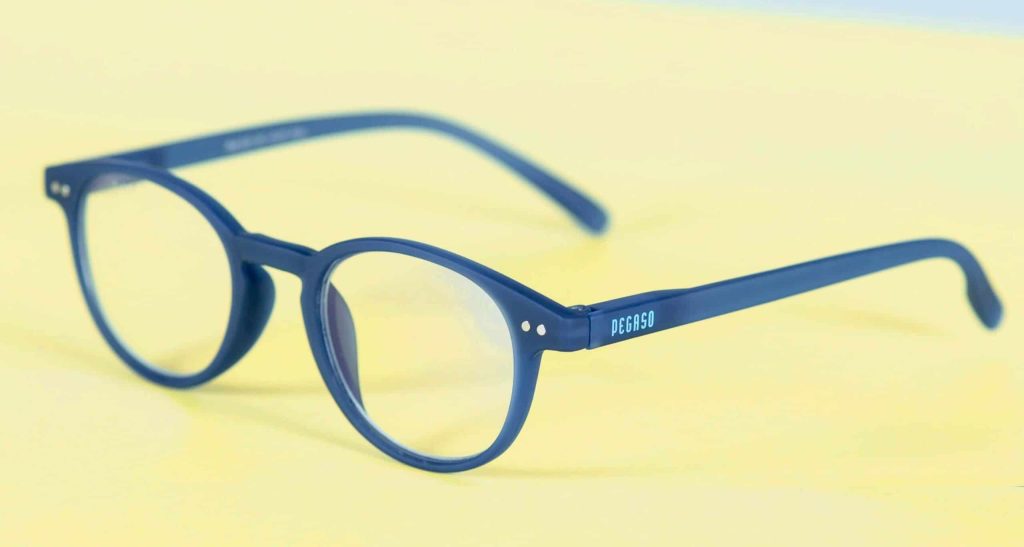Some ophthalmic lenses, both colorless and colored, have the property of filtering the UV rays that reach our eyes and thus provide protection against them. But beware! Not in all cases, nor in the same way. Learn about the differences and what to look out for in this blog post.
How UV rays are made up
The first thing we have to know is how ultraviolet radiation is composed and what risks it entails, that is, differentiate the different types of rays that form it:
- UVA: son los rayos que broncean y provocan el envejecimiento de los tejidos. Normalmente no causan quemaduras.
- UVB: son los rayos que pueden provocarnos quemaduras solares, así como, daños en los tejidos, que pueden derivar en lesiones crónicas a largo plazo.
- UVC: son los rayos más nocivos pero la capa de ozono es la responsable de absorberlos, en gran mayoría, impidiendo que lleguen a la tierra. Existen por ejemplo lámparas de rayos UVC que se utilizan como germicida o curar heridas, como la psoriasis.
Understanding this, we can realize how necessary protection is, since radiation also produces cumulative damage over time and can lead to ocular affectations such as: appearance of premature cataracts, aging of the eyelids, as well as, of the ocular tissues and diseases that affect the cornea, retina, iris or conjunctiva.
This is how the lenses of your glasses act in filtering UV rays
Organic material lenses, even colorless lenses, have the ability to filter part of UV rays, providing protection. However, there are differences in the filter percentage or level. This means that an organic lens with an index greater than 1.5 colorless by itself is capable of filtering almost 98% of UV rays, and if the lens were colored (like sunglasses) this percentage increases even more.
However, in the case of a colorless 1.5 index organic lens, this filtering level does not reach 90%, therefore it is recommended to apply an additional UV filtering treatment to the lens to ensure protection against UV rays. Although if the lens is colored it will no longer be necessary and the color itself will add the extra protection that will make it sufficiently filtering.
In the case of PC (Polycarbonate) material lenses, we can be very calm, this material is capable of filtering more than 99% of UV rays by itself.
These data are important because we must take care of our eyes and protect them from the sun's rays throughout the day and at all times of the year. Both to move, to work (if we do it outside) and whenever we expose ourselves directly to the sun.
What does it mean when sunglasses are UV400?
A UV400 protection indicates that your glasses will prevent you from receiving between 99 to 100% UV rays, that is to say that there is an almost total blockage.
In addition to this factor, to choose the sun glasses that provide you with adequate protection according to the activity you develop.
UV rays in data, according to WHO
- Between 10 in the morning and 2 in the afternoon, 60% of the daily UV radiation is received.
- There are surfaces that reflect UV radiation: snow up to 80%, sand up to 15%, and seawater foam up to 25%.
- At height, more protection. UV radiation increases by 4% for every 300 meters of elevation gain.
- Also when it is cloudy. Up to 80% of solar UV radiation can pass through thin cloud cover.
Also keep in mind that children's eyes are 7 times more affected by the sun than adults. Always protect them with glasses and if possible look for the shade.
Finally, remember that the quality of your glasses will be ensured by their certification under CE standards, look for the markings on lenses and rods.
Frequently asked questions about UV protection glasses
Do my colorless glasses filter UV rays?
Glasses with colorless lenses, depending on the lens material, may have the property of filtering UV rays. For example, polycarbonate filters UV rays up to 99%.
Why are sunglasses UV 400?
The UV400 indicator tells us that these glasses will prevent you from receiving 99 to 100% UV rays, that is, they can provide almost total blocking.
